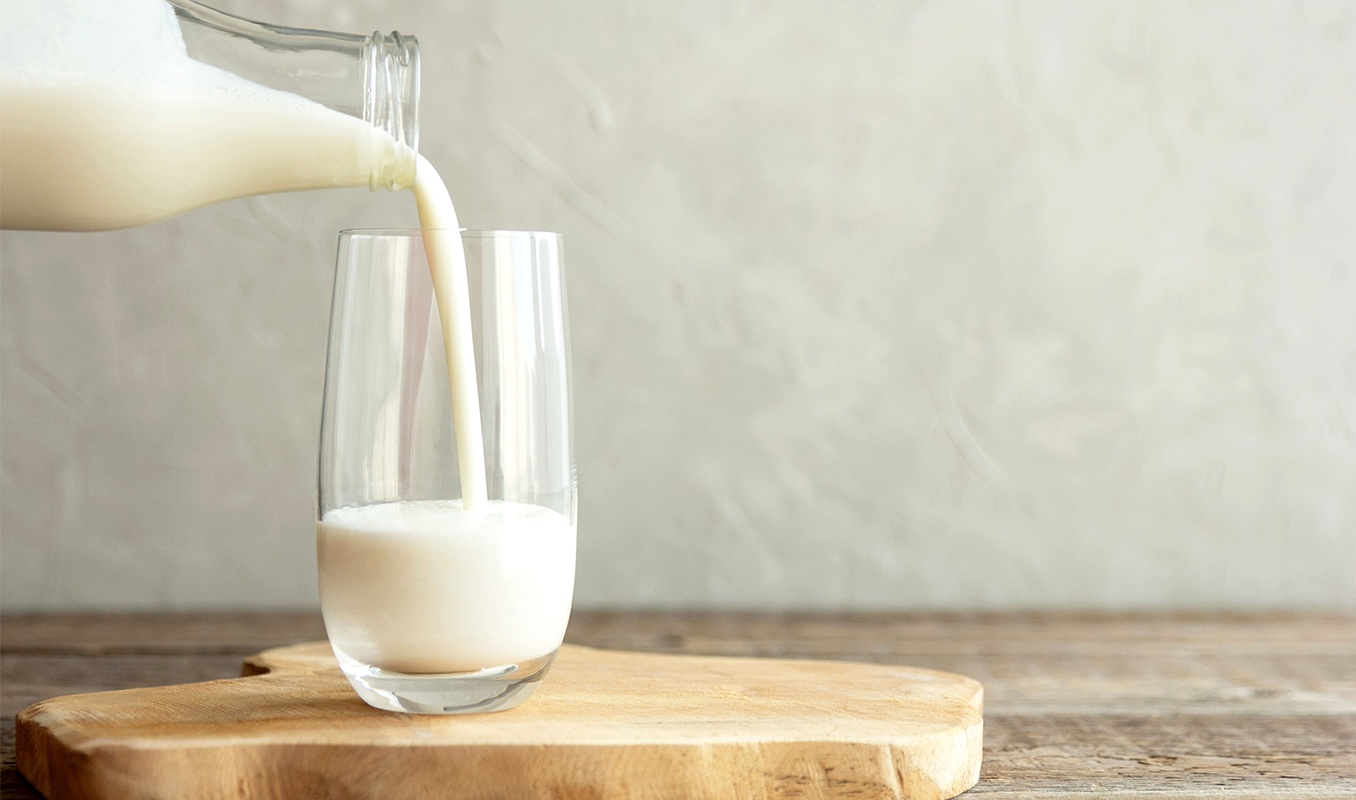


2/8/2022

When we think of superfoods, it conjures up images of kale, blueberries, chia seeds or goji berries – nutritional powerhouses on a mission to zap free radicals, stop cancer cells in their tracks and fumigate our digestive tract.
But one food often gets overlooked, even though its health-giving properties are right up there with quinoa, oily fish and leafy greens.
Milk – and particularly organic milk – has been an essential part of our diets for thousands of years and is arguably the king of the superfoods. Here’s why…
Happy tums
There are trillions of micro-organisms living very happily in your stomach helping digest food, absorb nutrients and keep your metabolism ticking over. But your ‘gut flora’ wouldn’t be quite so happy if you didn’t look after it – and milk does the job very effectively as it’s full of healthy bacteria, also known as probiotics.
It improves the body’s ability to take in iron, folate and vitamin B12 and even helps gastric ulcers heal more quickly.
SUPERFOOD TRIVIA: Until 2013, one US company bought more kale than any other, yet none of it was eaten. How come? Scroll down for the answer.
Boosting immunity
You’re also less likely to catch a cold or the flu if you’ve been drinking milk! That’s because just two cups contain half your daily recommended intake of vitamin D. One in four Aussies doesn’t get enough vitamin D making them more susceptible to infections.
If you drink those cups out in the sunshine, then you may well get all the vitamin D you need!
Grass for your heart
The cows on all our farms are free to roam around fields of rich, lush grass, and that has a really big impact on the milk they produce. It means it contains twice as much omega-3, a fat vital for brain development in babies and young children, eye health, fighting heart disease and reducing inflammation.
There are actually 17 ways it can improve your health!
Organic milk also has 26% less omega-6, a fat that can cause heart disease, strokes and blood clots if too much is consumed.
Pro-teen with protein
Young kids and teenagers need plenty of protein to help them grow and to regulate their immune systems. And milk is often called a ‘complete protein’ as it contains all nine essential amino acids that the body needs. A large glass of milk can provide around 16% of the daily requirement, depending on how much you weigh.
Antioxidant superpowers!
The antioxidants in milk have some superpowers that other superfoods simply can’t match! It may not be as trendy as fermented wheatgrass with beet juice, but milk does a better job at preventing damage to cells and DNA, thereby reducing the risk from some cancers, type-2 diabetes and neurodegenerative conditions.
The reason it’s so effective is that not all antioxidants work effectively in different environments. Some can only be absorbed by the body when dissolved in water, whereas others thrive when broken down in fats that are contained in milk.
And the parts of the body most affected by oxidative stress – cell membranes, nerve tissue and the brain – prefer antioxidants delivered in a substance like milk that contains fat. Plant-based ones are almost always water-soluble.
OK, so that sounds complicated, but essentially, it’s not just about how many vitamins a food has, it’s about how easily they get absorbed.
Milking the science
The International Milk Genomics Consortium is a group of scientists from around the world who study the impact of milk on human health. And guess what – it really does warrant being called a superfood!
Here are some of their findings:
At Barambah Organics, we’ve always known that our organic milk is a superfood. We’re just glad the scientists agree with us!
SUPERFOOD ANSWER: The company buying all that kale was Pizza Hut – it used it as a garnish between the foods in its salad bars!
Superfood recipes
Mixed berry & acai antioxidant smoothie
Recent stories
A day in the life of an organic dairy cow